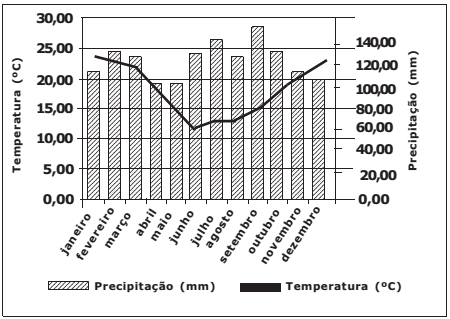Questões Militares
Para cadete do exército
Foram encontradas 1.497 questões
Resolva questões gratuitamente!
Junte-se a mais de 4 milhões de concurseiros!
According to the text, read the statements and choose the correct alternative.
I) Hiroo Onoda was in the jungle for 29 years.
II) Hiroo Onoda was abandoned in the jungle by his country after the war ended.
III) Hiroo Onoda tried to go back home many times.
IV) Hiroo Onoda had another soldier with him until 1972.
V) Hiroo Onoda was admired by people in Lubang.
Which word is a synonym for evaluations in the text?
Leia as afirmações abaixo relacionadas ao Brasil.
I- O Estado devia associar-se ao capital privado nacional e estrangeiro, para promover a industrialização acelerada do país.
II- O Estado devia intervir na economia, controlando as indústrias de base e os setores de energia, comunicações e transporte.
III- O governo devia limitar a remessa de lucros.
IV- O governo buscava atrair capitais estrangeiros, concedendo às empresas multinacionais facilidades para importar maquinário e isenção de impostos por vários anos.
Pode-se afirmar que as medidas
“Os primeiros trinta anos da História do Brasil são conhecidos como período Pré-Colonial. Nesse período, a coroa portuguesa iniciou a dominação das terras brasileiras, sem no entanto, traçar um plano de ocupação efetiva, […] A atenção da burguesia metropolitana e do governo português estavam voltados para o comércio com o Oriente, que desde a viagem de Vasco da Gama, no final do século XV, havia sido monopolizado pelo Estado português. […] O desinteresse português em relação ao Brasil estava em conformidade com os interesses mercantilistas da época, como observou o navegante Américo Vespúcio, após a exploração do litoral brasileiro, pode-se dizer que não encontramos nada de proveito”.(Berutti,2004)
Sobre o período retratado no texto, pode-se afirmar que o(a)
“O acúmulo de capitais, a modernização da agricultura, a disponibilidade de mão de obra e de recursos naturais e a força do puritanismo ajudam a explicar o pioneirismo da ____________ na Revolução Industrial”.(BOULOS Jr, p.421)
Das opções abaixo listadas, o país que melhor preenche o espaço acima é:
Após cerca de 3 (três) anos de intensos combates e milhões de baixas, em julho de 1953, foi assinado o Armistício de Pan-munjom, que confirmou a divisão da Coreia.
Leia as afirmações abaixo.
I – O Armistício de Pan-munjom, selou a paz definitiva entre as duas Coreias e os Estados Unidos.
II – O conflito iniciou-se com um ataque surpresa de tropas da República Popular da Coreia, ao vizinho do sul, em junho de 1950.
III – O Armistício de Pan-munjom acirrou as diferenças ideológicas entre os Estados Unidos (capitalista) e a União Soviética (socialista), dando início à Guerra Fria.
IV – Durante o conflito, o Conselho de Segurança da ONU autorizou o envio de tropas internacionais para a região, sob o comando do general estadunidense Douglas MacArthur.
Estão corretas
Leia as afirmações abaixo.
I- Permitiu o acesso à cidadania a todos os norte-americanos.
II- Abalou o prestígio do rei na Inglaterra e provou que era possível fazer valer a soberania popular.
III- Trouxe prejuízos aos povos indígenas, pois suas terras, localizadas em sua maior parte a oeste do Mississipi, passaram a ser atacadas pelos proprietários de terra e comerciantes de peles de origem europeia.
IV- Propiciou a abolição da escravidão nos Estados Unidos.
São repercussões imediatas da independência norte-americana
Observe o climograma de uma cidade brasileira e considere as afirmativas relacionadas a este.
I- O clima representado é denominado equatorial, em cuja área está presente uma vegetação do tipo hidrófila e latifoliada, característica da Floresta Equatorial.
II- Refere-se a um clima sob forte influência da massa Polar atlântica (mPa) e que apresenta uma significativa amplitude térmica anual.
III-Trata-se de um clima subtropical úmido, com precipitações ao longo de todo o ano, sem ocorrência de estação seca.
IV- Nas áreas em que esse clima predomina, observam-se precipitações que ultrapassam os 2.200mm, o que, aliado às altas temperaturas, favorece o processo de lixiviação e a consequente laterização do solo.
Assinale a alternativa em que todas as afirmativas estão corretas:

“Nas últimas décadas do século XX, o número de migrantes internacionais aumentou de forma significativa […] por causa das disparidades econômicas entre os países” (TERRA, L; ARAÚJO, R; GUIMARÃES, R. Conexões- Estudos de Geografia Geral. 1.ed. São Paulo: Moderna, 2009, p. 327)
Sobre as migrações no contexto da globalização podemos afirmar que
I- a globalização tem facilitado as migrações, devido tanto à redução do custo dos transportes quanto à expansão dos meios de comunicação.
II- embora os EUA e o núcleo mais próspero da União Europeia sejam as duas maiores zonas de atração de fluxos migratórios do mundo, países situados no Oriente Médio são os que possuem maior percentagem de imigrantes na população.
III- a crescente necessidade de mão de obra imigrante por parte da Austrália tem levado esse País a estimular a imigração através de políticas imigratórias menos seletivas.
IV- no México, o recebimento de remessas financeiras de seus milhares de emigrados constitui uma das maiores fontes de divisas do País.
V- as restrições cada vez mais rígidas impostas pelos países desenvolvidos à imigração clandestina, aliada à constante vigilância de suas fronteiras, têm impedido o crescimento do número de imigrantes ilegais no mundo.
Assinale a alternativa em que todas as afirmativas estão corretas.